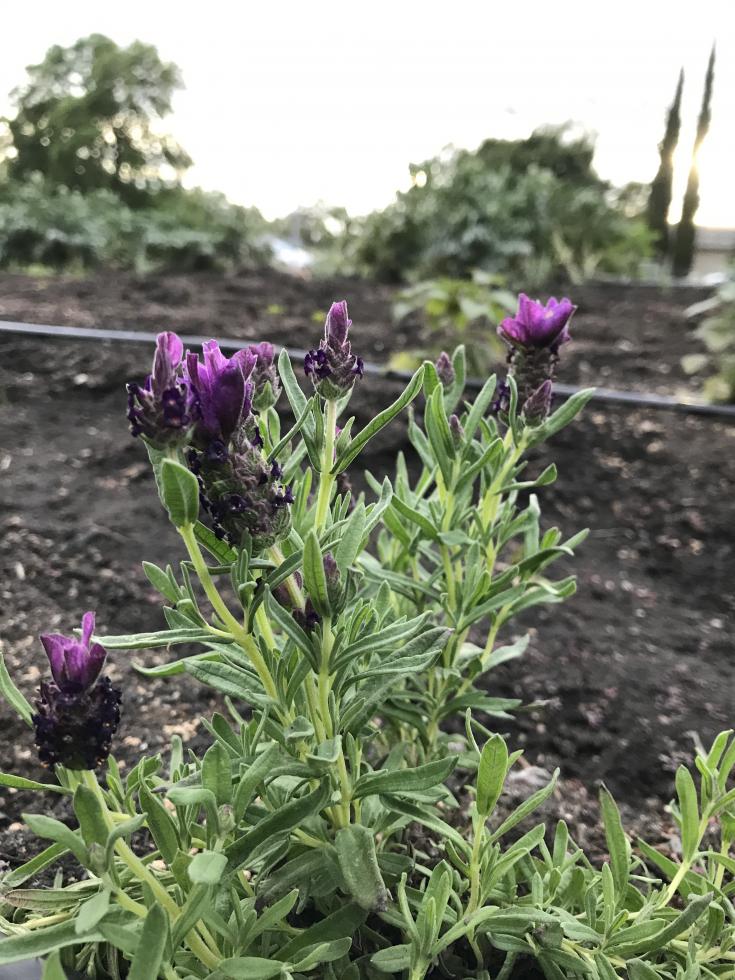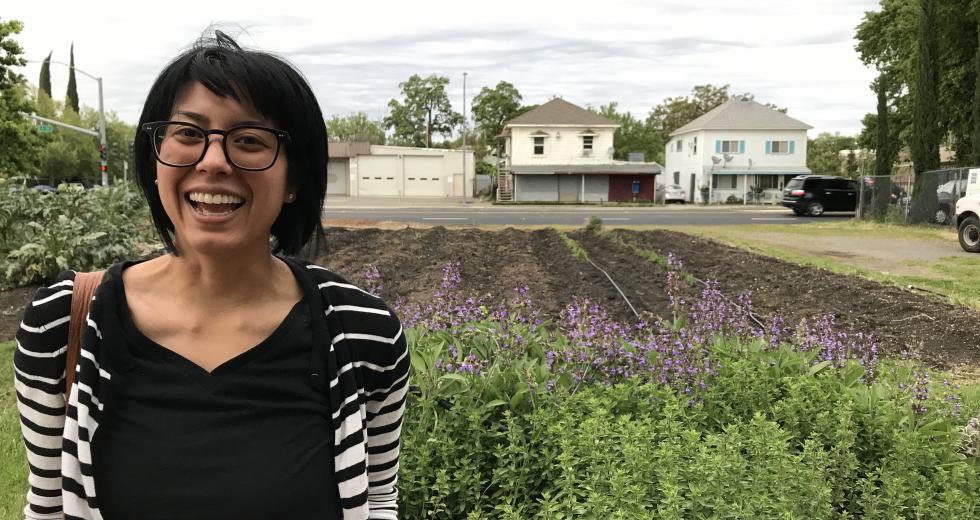“I’m just a grubby farm kid,” says Rubie Simonsen, who at the time is wearing crisp red pants paired with the clean lines of a striped black and white sweater. Despite the polished look she wears for her full-time nonprofit job, Simonsen’s passion is playing in nature, picking flowers and herbs, and getting her hands dirty. Her ultimate goal is to become a farmer.
Last year, Simonsen completed the seven-month California Farm Academy program through Center for Land-Based Learning, a nonprofit with the mission that educates future generations of farmers, agricultural leaders and natural resource stewards. The program addresses one of America’s most pressing problems: a loss of farmers.
For every 1 farmer over age 25, there’s 5 over age 75, according to the U.S. Department of Agriculture. America’s farmers are aging out of the business that feeds us, and Center for Land-Based Learning is focused on resolving this problem before it’s too late. To date, they have trained 96 future farmers, 17 of whom have purchased their own land and started farms.
Simonsen didn’t join the California Farm Academy program to save farming, however. Most trainees don’t. They join for personal reasons. Simonsen was working in Sacramento on food access issues when she started the program. Her journey started as curiosity: She had grown up on farms in Idaho and Sacramento, but in her food policy work, felt the farmer’s voice was missing.
This political journey quickly turned into a personal journey for Simonsen. As she toured farms, a theme repeated itself: “Farm what you love.”
First Mother Farms grows herbs and native weeds. (Photos by Amber
Stott)

Simonsen recalls childhood days spent playing in her grandmother’s herb garden. She and her sisters would pick herbs to cover cuts and scrapes, or add them to empty vitamin capsules. As children, she says they believed in magic, and were empowered to heal themselves with nature.
Creativity also flourished in her grandmother’s garden. Simonsen was allowed to mix garden herbs with her grandma’s mortar and pestle. They turned flowers into bookmarks and other crafts. Her grandma also made peach jam and boutonnieres for friends’ weddings.
“The training put those experiences in a catalog for me,” Simonsen says. “All those connections and memories became more useful.”
Through her training, Simonsen created a business plan, and four months ago, launched a crowdfunding campaign to kick off her business: First Mother Farms. To date, she has raised $5,000. The farm’s aim is to “inspire plant-based wellness through the sustainable farming of herbs and native weeds,” according to the website.
Simonsen wants to carry on the tradition of growing herbs, which she’ll turn into tonics for cocktails, teas and other products. She plans to make cold visits to local restaurant bars to find customers as she develops her business. She will also sell through a community supported agriculture subscription that Center for Land-Based Learning has created for a West Sacramento apartment complex.
Last weekend, Simonsen and her younger sister planted her first crop — lavender. Simonsen is leasing an eighth of an acre space on one of Center for Land-Based Learning’s incubator plots in West Sacramento.
According to Mary Kimball, the nonprofit’s executive director, these lots are essential to aiding beginning farmers. Startup costs, including land, create a significant barrier to new farmers. For someone like Simonsen, who holds down a traditional nine-to-five job, having access to a small, one-eighth acre farm, allows her a realistic entry into the profession. Through the nonprofit, she’ll receive support from mentors and staff, as well as access to tools, irrigation and storage, for an affordable rental fee.
Simonsen is grateful for the opportunity to start in a low-risk plot. Her most significant investment right now is her time. If she needs to farm during the week, that means waking up at four o’clock in the morning before going to her administrative office job.
“I don’t want to overcommit,” she says. “I don’t want contracts. This is a branding year.”
Despite the challenges, Simonsen is committed to making her new farm business a success. It’s personal. Two months ago, Simonsen lost both her grandmother and her father to a car accident. This recent trauma compounds a lengthy eight-year battle with post-traumatic stress disorder resulting from a violent relationship.
“Farming has helped me keep sane and heal from my past,” Simonsen says. “This farm is a personal investment in myself.”
Kimball says healing from trauma is becoming a more common story in farming; the farm academy has trained veterans, who also say that being outside, working with the earth, helps them recover while staying connected to community.
Simonsen says her business is “more than just a farm.” While she works on her own healing by growing herbs, she also plans to donate ten percent of anything she earns to WEAVE to help other women rebuild themselves.



